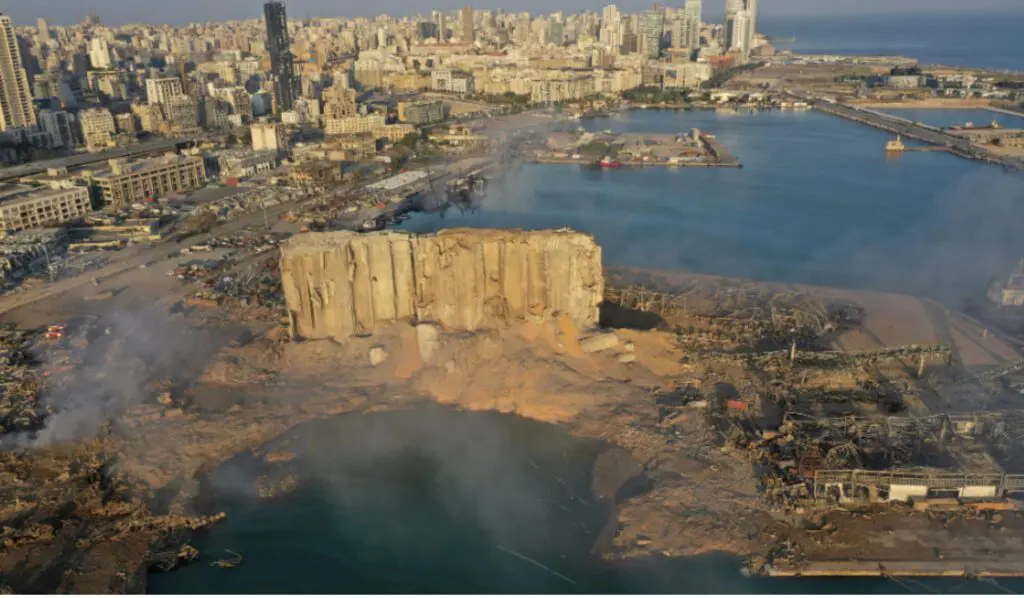The Weekly Reflektion 33/2023
When things are not as they should be, signals, both strong and weak, are sent from different parts of the organisation warning of an impending situation. These signals may not be seen, may be misunderstood may be ignored. Failure to react to these signals can be fateful.

Beirut Harbour area after the blast
Are you looking for signals, and do you make sure something is done?
On 4 August 2020, a large amount of ammonium nitrate stored at the Port of Beirut in the capital city of Lebanon exploded, causing at least 218 deaths, 7,000 injuries, and US$15 billion in property damage, as well as leaving an estimated 300,000 people homeless. A cargo of 2,750 tonnes of the substance (equivalent to around 1.1 kilotons of TNT) had been stored in a warehouse without proper safety measures after having been confiscated by Lebanese authorities from the abandoned ship MV Rhosus.
The story surrounding the cargo is tragic, not only because of the consequences, but because of inaction by the authorities even though strong signals that something was wrong were available. In September 2013, the MV Rhosus set sail from Georgia bound for Mozambique, and by November the same year it had reached Beirut. After inspection by the Lebanese port control authorities, the MV Rhosus was deemed to be unseaworthy and was forbidden to leave the port. The Russian owner went bankrupt and abandoned the ship, which in turn was seized by the authorities due to unpaid harbour fees.Lawyers argued for the crew’s repatriation on compassionate grounds because of the danger posed by the cargo still aboard the ship, and a Lebanese judge allowed them to return home.
By order of the judge, Rhosus’s cargo was brought ashore in 2014 and placed in a warehouse at the port, where it remained for the next six years. The MV Rhosus sank in the harbor in February 2018. Lebanese customs officials had requested a resolution to the issue of the confiscated cargo, proposing that the ammonium nitrate be either exported, given to the Lebanese Armed Forces or sold to the private Lebanese Explosives Company. In 2016 a communication to the legal authorities pleaded “In view of the serious danger of keeping these goods in the hangar in unsuitable climatic conditions, we reaffirm our request to please request the marine agency to re-export these goods immediately to preserve the safety of the port and those working in it, or to look into agreeing to sell this amount …”.
On the day of the blast, a fire broke out in the warehouse, and about 25 minutes later the main blast flattened much of Beirut. Many were aware of the danger posed by the ammonium nitrate, but nothing was done. This disaster could have been prevented by the authorities taking action, but with rampant bureaucracy and corruption, no one did or perhaps no one could.
Are there obstacles in your organisation preventing the necessary actions being taken? What do you do when strong signals are sent? Have you empowered the people in your organisation to look for and react to signals that indicate that something is not right, and an accident is imminent.
